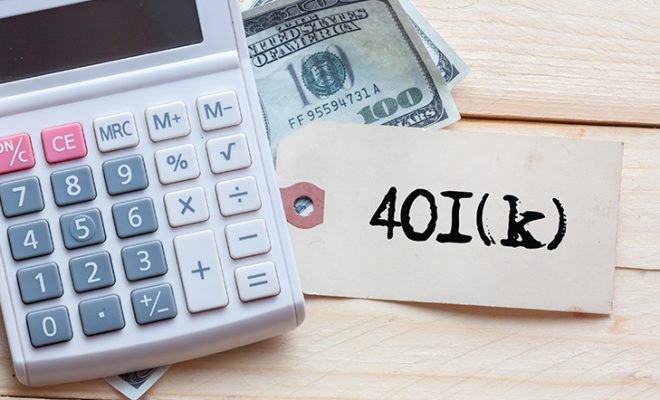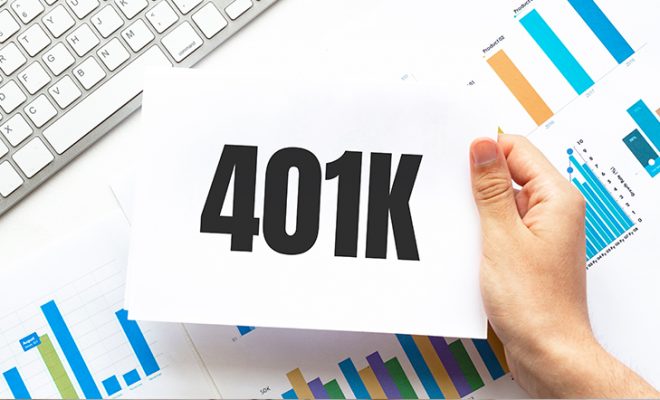3 Important 401(k) Strategies to Employ for the Remainder of 2020

2020 has been a challenging year for people of all age groups, economic backgrounds, and professions. With the markets taking a hit, many investors lost money. In addition to this, the absence of jobs created a financial crunch, forcing people to rely on their unemployment benefits and taking on debt. Returns from savings and investments have also considerably suffered this year. However, some strategies can be employed to better things and ensure that the years to come will be more hassle-free.
The 401(k) account is one of the most preferred and commonly used savings methods in the country. As 2020 comes to an end, here are some things you can do to maximize the benefits from your 401(k).
- Go beyond the default rate and match your employer’s contribution
Matching your employer’s contribution in a 401(k) plan refers to putting in the same amount of money in the account as your employer. The pandemic made it hard for employers to go on contributing to 401(k) plans in 2020. However, many companies continued to contribute to employee 401(k) plans out of goodwill. In order to avail the benefits of a 401(k) plan and your employer’s addition to this account, you too should match the contribution of your organization. This will safeguard your future and maximize your overall earnings. Moreover, contributing as much as your company has no negative impacts on your salary or taxable income.
The important thing to remember is that you must contribute at least 3% of your income to have your employer match your contribution. But you can go beyond this percentage if you wish to. In fact, it is recommended to increase your contributions over 3% to enable adequate retirement savings. If you can let go of this money in the coming months, you will have sizeable gains in the long run.
- Increase your contribution to the plan
This may sound difficult at first, given the many economic setbacks you may have faced in 2020 due to the Covid-19 pandemic. However, this year has not only been about pay cuts but also optimizing on your funds. With the pandemic, most financial advisors have suggested their clients redo their budget. When you revisit your monthly budget, you will find many unnecessary expenses that you can get rid of. These would include club subscriptions, gym members, magazines subscriptions, and a lot more. It is easy to eliminate such kinds of costs from your list of expenditure. However, you need to go beyond cutting costs.
What you do with these savings is what makes a bigger difference. Increasing your contribution to your 401(k) plan is a great way to ensure that your future is financially secure.The money that you save from excluding unwanted costs should have a place and use in building your financial stability. One of the best ways to do so is by putting the excess funds into your 401(k) account. This is also a great time to increase your contributions as the lockdown and socializing and travel restrictions are not likely to ease up any time soon. So, you can comfortably increase your contributions. Once things begin to open up, you may find yourself drawn to some of these expenses again, which may make it hard to keep up with high contributions for an extended time.
- Understand the provisions of the CARES Act when withdrawing money from a 401(k)
As per the Coronavirus Aid, Relief, and Economic Security Act (CARES Act), you can withdraw up to $100,000 from your 401(k) account without any penalty if you have been economically affected by the pandemic. Prior to 2020, there was a penalty of 10% on any withdrawal before the age of 59.5 years. If you wish to withdraw funds from your 401(k) account, you must know the conditions approved under the Act.
As per the CARES Act, you can use your 410(k) funds under the following circumstances:
- You have been diagnosed with the coronavirus.
- You have lost your job due to the Covid-19 pandemic.
- You have had a pay cut or income loss because of the pandemic.
- Your spouse was diagnosed with the coronavirus.
- Your spouse lost their job or income because of the pandemic.
Withdrawals that do not meet these conditions will attract a 10% penalty as before. Therefore, you must carefully assess your situation or consult a financial advisor before you withdraw any money.
Another thing to keep in mind when it comes to your 401(k) account is that despite the relaxation in the withdrawal rules, these funds are still your retirement savings. Therefore, you should try to not use this money unless you have no other source of income left. Touching your retirement funds should always be the last option and never the first choice.
To sum it up
2020 has been full of unexpected events that have caused severe losses for everyone. But this is only one year. The rest of your life still lies ahead of you. Therefore, you must not compromise your tomorrow by panicking over the circumstances of today. These 3 strategies can help you drive out of 2020 with ease. So, note them down carefully and try to optimize your savings for your retired life.
You can also get in touch with financial advisors for more information on how to make the most of your 401(k) savings plan and live a comfortable and abundant retirement.










